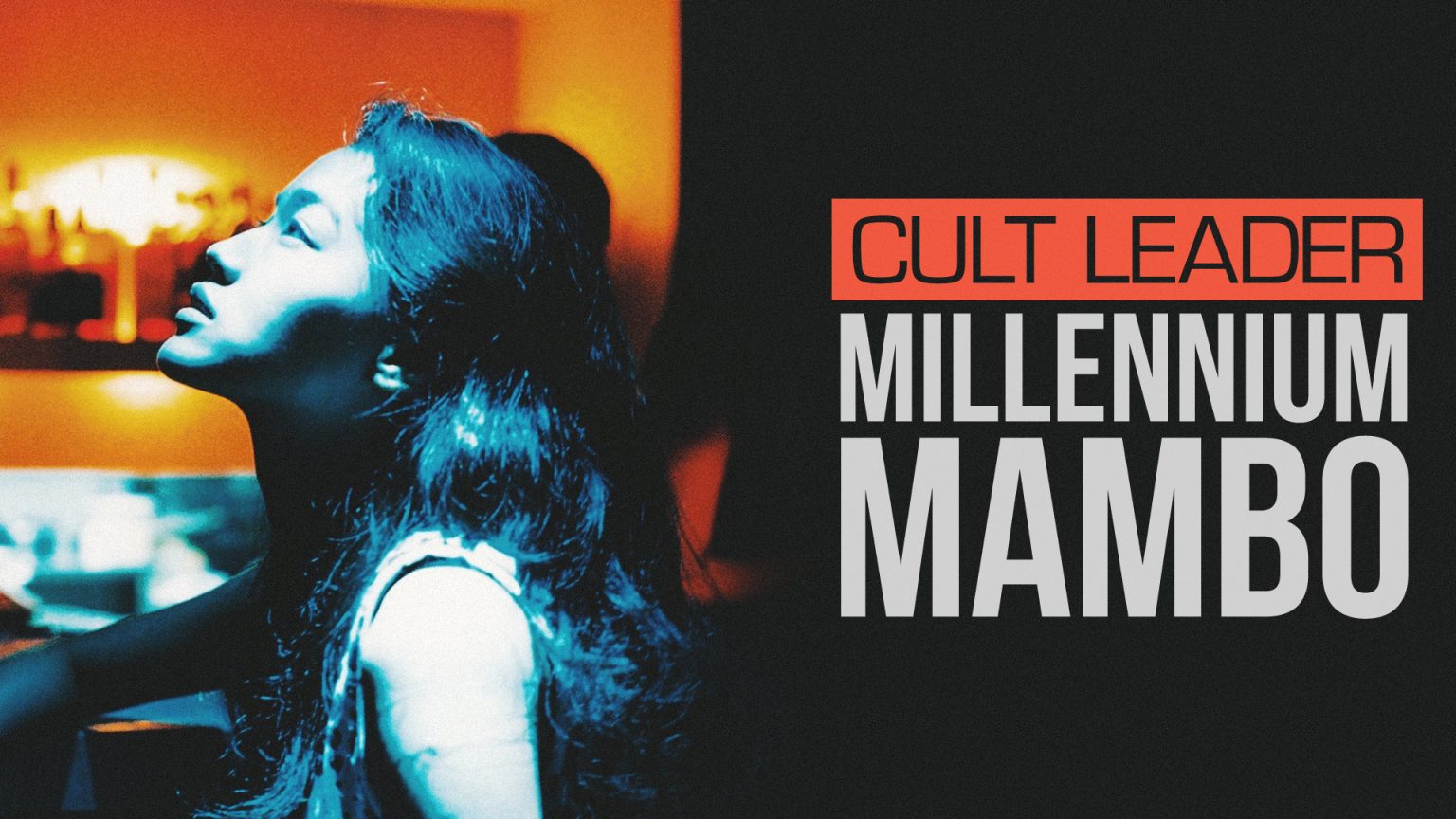Taiwanese auteur Hou Hsiao-Hsien had already been making masterpieces to worldwide acclaim when he released 2001’s Millennium Mambo. Although he is a member of the Taiwanese New Wave, Hou possesses a style less like fellow members Edward Yang and Tsai Ming-Liang, and more in keeping with the existential experiments of Iranian director Abbas Kiarostami. Even in lush, rigorous dramas about Chinese and Taiwanese history, Hou encourages naturalistic acting and camera work, as well as improvisation.
His most recent work The Assassin proved that the master had not lost his touch and that he is still one of the most innovative and self-assured directors in cinema. “Minor” films from major directors can make for compelling cult movie fodder, and Millenium Mambo finds the austere Hou delving into a decidedly modern era of Taiwanese history and culture: the neon-lit Y2K club scene.
Millennium Mambo is a series of memories told in hindsight by a woman named Vicky (played by the luminous Qi Shu, also of Hou’s The Assassin) living in Taipei at the turn of the millennium. Vicky explains in a breathy voiceover in the first scene that she is telling this story ten years in the future and—perhaps to add another layer of meta detachment—she refers to herself in the third person. Vicky goes back and forth between a rocky sexual relationship with her violent, live-in boyfriend Hao-Hao (Tuan Chun-hao), and a more fatherly relationship with a local gangster named Jack (Jack Kao).
The viewer is more privy to the identity of her current love interest and the dance clubs she frequents than her inner life, which highlights the difference between Past Vicky and Future Vicky. At a mid-point in the film, Vicky shows a rare flash of independence when she cuts out on Hao-Hao to take a spontaneous trip to Yubari, Japan. Upon returning to Taipei, she continues her work as a bar hostess and eventually moves in with Jack to escape Hao-Hao. However, Jack must hightail it to Japan to escape a mob turf war and he soon invites her to join him. She goes to Japan, but Jack is nowhere to be found. The story ends on a bittersweet coda. Vicky is once again in Japan, but her future seems even more unclear.
Millennium Mambo could be accused of being slight, but the film’s most notable aspect isn’t its story—rather, it’s how such a story is told. Many scenes of Vicky’s nightlife are juxtaposed with her voiceover waxing nostalgic about an unrelated incident in her relationships with Hao-Hao or Jack. A seasoned viewer is to assume that Hou is making an artistic choice, using such narration to expedite our understanding of the characters—a risky decision to tell rather than a show—or perhaps, to cast a gloomy mood over scenes of carefree partying.
Several scenes pass and the voiceover fades from the viewer’s thoughts. Then suddenly, déjà vu! The events described in the voiceover begin to unfold onscreen. Many films use voiceover narration as a crutch (wryly lampooned in Spike Jonze’s Adaptation), but Mambo does something unprecedented. Unbeknownst to the audience, Hou has told us what’s going to happen, and yet the spoiler itself comes as a genuine surprise. And just as the viewer settles back in, Hou repeats the effect later in the film and again it astonishes. The scenes and voiceover narration fold, split and collapse onto each other, and the audience is left to reconcile how Hou is subtly manipulating the film’s (and our own) sense of time, memory, and reality.
When a film attempts to capture a specific era of youth culture, the results can often be cringeworthy—usually, the filmmaker gets it so wrong, or so right. These “voice of a generation” films, whether lackluster or superb, can dredge up memories of our own youthful follies (at least with the shuttering of JNCO jeans, this generation has a chance). Just as revisiting a favorite film from childhood can reveal that it does not hold up when viewed as an adult, we are sometimes forced to re-examine the nebulous nature of our own memories and the human tendency to self-mythologize.
Hou best sums up this sense of self-reflection in the film’s final moments. After being stood up by Jack in Japan, Vicky’s past and present align momentarily, as her voiceover catches up to the current scene, only to immediately circle back to her previous trip to the snow-capped Japanese village of Yubari. As Vicky walks in the snow, she compares Hao-Hao to a snowman, who she imagines will vanish and melt away as soon as the sun rises—it’s a moment that beautifully emblematizes the film’s representation of memory.
Ultimately, many films wither under closer inspection or simply fade from memory, but Millennium Mambo helps prove that Hou’s films are indelible.
Watch Now: Hou Hsiao-Hsien’s Millennium Mambo.




